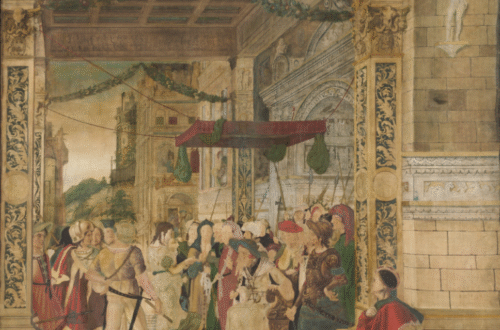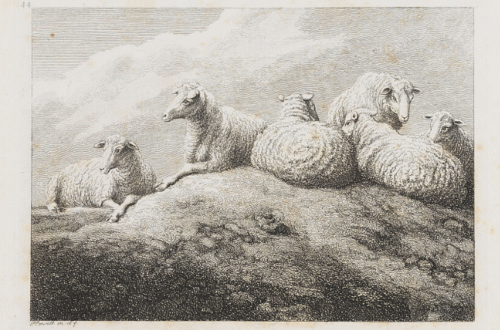Preaching the Word: Genesis 45:1–9 (NKJV)
45 Then Joseph could not restrain himself before all those who stood by him, and he cried out, “Make everyone go out from me!” So no one stood with him while Joseph made himself known to his brothers. 2 And he wept aloud, and the Egyptians and the house of Pharaoh heard it.
3 Then Joseph said to his brothers, “I am Joseph; does my father still live?” But his brothers could not answer him, for they were dismayed in his presence. 4 And Joseph said to his brothers, “Please come near to me.” So they came near. Then he said: “I am Joseph your brother, whom you sold into Egypt. 5 But now, do not therefore be grieved or angry with yourselves because you sold me here; for God sent me before you to preserve life. 6 For these two years the famine has been in the land, and there are still five years in which there will be neither plowing nor harvesting. 7 And God sent me before you to preserve a posterity for you in the earth, and to save your lives by a great deliverance. 8 So now it was not you who sent me here, but God; and He has made me a father to Pharaoh, and lord of all his house, and a ruler throughout all the land of Egypt.
9 “Hurry and go up to my father, and say to him, ‘Thus says your son Joseph: “God has made me lord of all Egypt; come down to me, do not tarry.
Genesis 45 marks a turning point in one of the most moving stories in the Bible. Joseph—sold into slavery by his brothers, wrongfully imprisoned, and later elevated to a position of power—can no longer restrain his emotions. He reveals himself:
“I am Joseph.”
Three words. A bold declaration. And a moment of complete transformation.
His brothers, overwhelmed with guilt and fear, are stunned into silence. Joseph, once cast off and left for dead, now holds their lives in his hands. And instead of revenge, he offers grace.
From Accusation to Redemption
Joseph doesn’t sugarcoat the past. He says plainly:
“I am Joseph your brother, whom you sold into Egypt.”
There’s no hiding from the truth. But then comes the unexpected:
“Do not be grieved or angry with yourselves… for God sent me before you to preserve life.”
Joseph had every right to retaliate. His power could have crushed them. But instead, his words and actions reflect divine purpose. He chooses to see God’s hand working through human wrongdoing to bring about salvation—not just for himself, but for many.
This kind of proclamation reminds me of Peter’s sermon in Acts 2:
“You have taken [Jesus] by lawless hands, have crucified, and put to death…” (Acts 2:23)
Peter doesn’t hesitate to point to guilt—but neither does he stop at accusation. He continues with the good news of resurrection and redemption. Likewise, Stephen, before being martyred in Acts 7, boldly names the sins of his people. Speaking truth, even when it stings, is part of faithful preaching.
And yet—what matters most is not accusation, but restoration.
The Power of Choices
Joseph had options. He could have punished. He could have ignored. But he chose reconciliation.
He asks, “Does my father still live?” His concern was not for revenge, but for reunion.
He commands, “Hurry and go get my father!”
Joseph’s longing to see his father Jacob reflects a human urgency many of us know. I remember long childhood car rides from my hometown of Springfield, Colorado to visit my grandmother in Sidney, Nebraska. Hearing, “We’re in Nebraska” made me think we were almost there—but Grammy’s house was still miles away. I couldn’t wait.
Joseph likely felt that same eager ache. He hadn’t seen his father in decades. The journey back to Canaan would take his brothers nearly 10 days—and another 10 to return. A full month would pass before father and son would embrace again.
I Am Joseph… But God Did It
Maybe Joseph wanted to say to his father:
“Remember my dreams? The ones no one believed? Look what God has done!”
But the key is this: Joseph never takes the credit. He says clearly,
“It was not you who sent me here, but God.” (Genesis 45:8)
Joseph knew that it wasn’t his looks, strength, or intelligence that saved Egypt. It was God—working through his suffering and faithfulness.
That’s what we must remember. When life brings hardship or betrayal, or when the path is long and uncertain, God is still at work.
Life Application: Trust God’s Bigger Story
Joseph’s story reminds us: God has a plan, even in our pain.
There are countless young people today who give up on life far too soon—never knowing the greatness God may have intended for them. What might have happened if they had trusted God to write their story?
Joseph’s journey—from pit to palace—was not easy. But it was purposeful.
Like Joseph, we have options.
Will we choose bitterness—or forgiveness?
Revenge—or restoration?
Fear—or faith?
“I Am Joseph” Rev. Dennis Alan RobertsFulbright, Shubert, Nebraska, July 14, 2024





